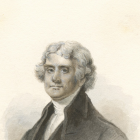Writing Trauma: Notes of Transcendence
This is Tracy Strauss‘ first post in a series on “Writing Trauma: Notes of Transcendence,” about the process and power of writing and publishing about trauma-related topics.
*
Writers have the privilege—and power—of putting words to experience: the good, the bad, and the ugly.
These days, in our national and world news, on television and social media, we’re immersed in traumatic events: terrorist attacks, mass shootings, natural disasters, college campus sexual assaults, abuse scandals, and domestic violence. None of us is immune to experiencing or witnessing terrifying and life-changing incidents—whether abroad, in our country, in our neighborhoods, or in our own homes.
Through the art of writing, poets and prose writers have the ability to articulate what seems incomprehensible: circumstances many people have trouble uttering, processing, and transcending. Using language, writers navigate the stages of a complex and arduous journey, providing meaning and purpose to what might otherwise feel futile, showing us the way through traumatic times.
Experiencing trauma shatters our assumptions about goodness in our world and our basic safety in daily life. In the aftermath of the terrorist attacks on 9/11, grappling with both an internal and external state of chaos, Norman Stock, in his poem “What I Said” (Poetry After 9/11: An Anthology of New York Poets, Melville House), honestly and openly shares his reaction, including his wish for revenge:
after the terror I
went home and cried and
said how could this happen and
how could such a thing be and
why why I mean how could
anything so horrible and how could
anyone do such a thing to us and what
will happen next and how can we live now
it’s impossible to understand it’s impossible
to do anything after this and what will any of us do now and how will we live
and how can we expect to go on after this
I said and I said this is too much to take no one can take a thing like this
after the terror yes and then I said let’s kill them
Stock’s poem reflects a very common response to trauma: a wish to be powerful in the midst of feeling powerless. According to renowned trauma researcher Judith Herman, as detailed in her book Trauma and Recovery, “the revenge fantasy is often a mirror image of the traumatic memory, in which the roles of perpetrator and victim are reversed.…During the process of mourning, the survivor must come to terms with the impossibility of getting even.”
Overcoming trauma requires the survivor to proceed through various emotional stages. In his poem, Stock relinquishes all pretense. He expresses the overwhelming state of shock felt by so many after the attack on 9/11. The speaker’s stunned state of mind is illustrated through the lack of punctuation and use of enjambment, mimicking the rushed flow of uncensored thoughts, propelled by a sense of helplessness in the face of unfathomable terror. The poem ends without a sense of healing or resolution, but that is no failure—it is its success: the poem encapsulates an internal state, and it does so exquisitely, reflecting an early stage of dealing with traumatic experience.
 A survivor of childhood trauma, I wasn’t diagnosed with Post-Traumatic Stress Disorder (PTSD) until I was twenty-nine years old, when, debilitated by chronic anxiety and depression, I sought professional help. In therapy, I began to delve into what had been unbearable to face in my past. As I examined the events and their profound effects on my life, writing became my anchor. When I felt paralyzed by the disorienting intensity of unprocessed incidents and emotions, anger or fear or shame or sadness, I molded them into concrete language, images, and sounds—first with poetry and then, as I traveled onward through the path of recovery, prose. Employing language, I worked to master what had once mastered me.
A survivor of childhood trauma, I wasn’t diagnosed with Post-Traumatic Stress Disorder (PTSD) until I was twenty-nine years old, when, debilitated by chronic anxiety and depression, I sought professional help. In therapy, I began to delve into what had been unbearable to face in my past. As I examined the events and their profound effects on my life, writing became my anchor. When I felt paralyzed by the disorienting intensity of unprocessed incidents and emotions, anger or fear or shame or sadness, I molded them into concrete language, images, and sounds—first with poetry and then, as I traveled onward through the path of recovery, prose. Employing language, I worked to master what had once mastered me.
I came to understand why, for years, I’d been drawn to war literature, slave narratives, and memoirs written by people who somehow, in the face of losing everything, found a way to not only survive but to surmount their unthinkable conditions, to thrive—not forgetting or burying or stewing in their traumatic pasts, but embracing the resiliency of the human spirit by turning tragedy into art. Among many books I found compelling was Tim O’Brien’s The Things They Carried, in which O’Brien pins down not only the dialectic of trauma but the way writing empowered him: “I realize it is as Tim trying to save Timmy’s life with a story.”
In The Trauma Artist: Tim O’Brien and the Fiction of Vietnam, Mark Heberle analyzes, among other O’Brien works, the chapter “Good Form” in The Things They Carried. Heberle concludes that “[O’Brien] writes stories not to recall past experiences but to make them up, to overcome the emotional constriction of the past. Stories, he asserts, can ‘make things present’ so that ‘I can look at things I never looked at. I can attach faces to grief and love and pity and God. I can be brave. I can make myself feel again.’”
In writing about trauma, writers create a healing relationship with readers. Words serve as the rungs of a ladder to recovery, leading us up and out of a dark and scary place to a potent arena of veracity, validation, grief, comfort, love, growth, and even, perhaps, from time to time, the levity of humor. Writers provide perspective. They give themselves, and readers, the power to become unstuck from collective pain, to climb out of despair, one step, one word, at a time.
In an essay I wrote for Poets & Writers Magazine’s “Why We Write” column (Sept/Oct 2013 issue), I state that “writing about trauma is more than simply documenting experience—it’s about illuminating life on earth. It’s about transforming tragedy into art, and hoping that somehow that piece of art may help someone else who’s gone through something unbearable and who doesn’t yet see that there truly is a light at the end of the dark tunnel.”
In unspeakable times, through the tangibility of words, writers and readers can join each other in community, in courage, in enduring strength.



